Have you ever felt a sudden inflow of emotions while listening to a powerful song? Or experienced a sense of calm descending upon you with a soothing melody? Music has a profound way of affecting us, and this power is harnessed in the field of music therapy.
Music therapy is an evidence-based healthcare profession that uses the power of music to achieve specific therapeutic goals. In this blog, we will talk about music therapy, exploring its history, applications, and the many benefits it offers.
What is Music Therapy?
While we all experience the uplifting or calming power of music, music therapy goes far beyond simply jamming on your favorite playlist. It's a clinical practice that uses music interventions designed by a credentialed music therapist to address specific goals and improve a person's physical, emotional, and cognitive health.
Music therapists are trained professionals who understand your needs and develop a personalized plan tailored to your specific goals. This plan can involve activities like listening to music, singing, playing instruments, discussing your favorite songs, or even creating your own music.
A core aspect of music therapy is the relationship built between you and the therapist. This safe and supportive environment builds trust and allows you to engage with the music in a meaningful way.
So, while listening to your favorite tune can certainly change your mood, music therapy is more of a structured, goal-oriented approach designed and led by a qualified professional.
Before we start understanding the benefits and applications of music therapy, let's take a quick look into its fascinating history.
Music Therapy: A Brief History
People have always known there's something special about music. Many cultures around the world have traditions of using music for healing purposes, often linked to spiritual beliefs. While music therapy as a formal profession is quite young, its roots run deep. Let’s get a quick rundown of its history.
Early Beginnings
The story of music therapy starts way back in ancient civilizations. Writings by philosophers like Aristotle and Plato talked about the power of music to influence emotions and health.
18th and 19th Centuries
The formal study of the effects of music on the human body and mind began in the 18th century. Doctors and researchers started digging into how music affects our bodies and minds. They started documenting the clinical uses of music more frequently during this time period. The first known reference to music therapy appeared in an article titled "Music Physically Considered,” which was published in 1789.
The 19th century saw a more scientific approach to music therapy, with physicians like Richard Caton and Edwin Atlee discussing and implementing music as a method for treatment.
20th Century: Development and Formalization:
The 20th century is when music therapy really stepped into the spotlight. Following World War I and World War II, music therapy helped veterans cope with the physical and emotional trauma of war. This created a need for more trained professionals.
- Thayer Gaston (1901 – 1970), often referred to as the "father of music therapy," played a major role in advancing the profession by establishing organizational and educational frameworks.
In 1944, the Michigan State University started the first academic program in music therapy. Soon after, in 1950, the National Association for Music Therapy (NAMT) was founded in the USA. This association started establishing the standards for how music therapy should be used in clinical settings.
By the late 20th century, educational programs and credentialing in music therapy were on the rise, solidifying its place in therapeutic settings.
Music Therapy Today
Today, music therapy is a recognized healthcare profession with a strong foundation in research. Music therapists use established protocols and track progress toward measurable goals. It is practiced in a variety of settings, addressing a broad spectrum of needs including improving communication, managing stress, enhancing memory, and promoting physical rehabilitation.
Research continues to explore the effectiveness of music therapy for various conditions, and this will lead to the development of new techniques and applications.
The story of music therapy is one of ancient wisdom meeting modern science. As our understanding of music's influence on the human body and mind continues to grow, the field of music therapy will undoubtedly evolve.
Building on this rich history of music therapy, let's explore the goals and objectives of music therapy in practice.
Goals and Objectives: How Music Therapy Works
Music therapy is a targeted approach that uses the power of music to address a wide range of needs. Here are some key goals music therapy can help you achieve:
- De-stress and Feel Your Best: Music therapy can be a powerful tool for relaxation and stress management. By including music in your sessions, a therapist can help you unwind, reduce anxiety, and improve your overall well-being.
Research shows that music therapy can lower heart rate and cortisol levels (a stress hormone), release endorphins (mood boosters), and improve one's sense of well-being. In fact, a study has found that music therapy can be a helpful way to manage stress in children.
- Manage Pain and Express Feelings: Sometimes, it's difficult to express your pain using words. Music therapy can provide an outlet for expressing emotions that might be difficult to articulate. It can also be used to manage pain perception, making you feel more in control.
- Combating Depression: A 2022 meta-analysis highlighted the effectiveness of active music therapy with a qualified therapist in reducing depressive symptoms in older adults. This approach proved to have a lower risk of side effects compared to medication.
- Sharpen Your Memory: Music therapy can be a very useful tool for improving cognitive function. It can help stimulate memory recall, enhance communication skills, and encourage self-expression.
- Move with Confidence: Physical rehabilitation can be more engaging with music therapy. Therapists can use rhythm and melody to help improve motor skills, coordination, and balance. For example, you might engage in drumming exercises to improve motor skills.
- A Well-Rounded You: Music therapy can address a variety of needs that contribute to overall well-being. It can help with emotional regulation, social interaction, self-expression, and personal growth.
The benefits extend beyond emotional and mental health. Music therapy can also improve cognitive function, especially in individuals with memory impairments like Alzheimer’s and dementia. Research suggests that music can stimulate the parts of the brain responsible for memory and recall.
Now that we've explored the goals music therapy can help you achieve, let's discuss the applications and techniques therapists use to use this powerful tool.
Applications and Techniques: Putting Music Therapy into Practice

Music therapy can be broadly categorized into two approaches: active and receptive.
Active Music Therapy: This involves actively creating music. The therapist may provide instruments or guide you in singing, improvisation, or songwriting. This participation can help with motor skills, communication, self-expression, and emotional release.
Receptive Music Therapy: This focuses on listening to music purposefully. The therapist might curate playlists based on your needs or use specific genres to evoke certain emotions. You might also engage in discussions about the music you listen to, leading to self-awareness and reflection.
Now, let’s look at some common techniques used by music therapists:
1. The Power of Three: Listening, Singing, and Playing
These core activities form the foundation of many music therapy sessions. A therapist might:
- Guide you through attentive listening exercises to help you relax and focus.
- Encourage singing, either individually or in a group, to promote self-expression and emotional release.
- Use instruments, including traditional options or adapted ones, to help improve motor skills, coordination, and creativity.
2. Tech Time: Bringing In the Modern Touch
Music therapy shakes hands with technology to enhance the experience. Therapists might use:
- Specialized apps and software to create customized soundscapes or interactive musical experiences.
- Biofeedback tools that combine music with physiological data to track progress and personalize interventions.
3. Group Groove: Togetherness Through Music
Humans are social creatures who thrive in groups and connections. Music, with its universal power to move us, can help us create a shared experience that strengthens these bonds and allows us to flourish together.
Music therapy can be a powerful tool for connecting people. Group activities and exercises can be designed for:
- Adults: These might focus on building social skills, communication, or promoting teamwork through collaborative musical experiences.
- Children: Music therapy can be used to address developmental delays, enhance learning, or provide a safe space for emotional expression in a group setting.
4. Calming the Storm: Techniques for Crisis Management
Music therapy can be a valuable tool in managing crises and triggers. A therapist might use the following:
- Calming melodies or improvisation to de-escalate situations and promote relaxation.
- Familiar songs or personalized playlists to provide comfort and grounding during emotional distress.
5. Music Makes School More Inclusive
Music therapy can play a supportive role in educational settings by:
- Helping students with learning disabilities by providing alternative learning pathways through music.
- Creating a more inclusive environment where students with different abilities can connect and learn together through music.
These are just a few examples, and a qualified music therapist will tailor their approach to your specific needs and goals.
Power of Music: Why You Should Support Music Therapy
Music is a universal language with the power to connect us on a deep level. By supporting music therapy programs and initiatives, you can help ensure everyone has access to this evidence-based approach to healing and well-being. Here are some ways to help:
Support Music Programs in Schools: Many schools face budget cuts that threaten music programs. Speak to your local school board or donate to organizations that support music education initiatives.
Volunteer Your Time: If you have musical skills, consider volunteering your time to teach music lessons in community centers or after-school programs.
Promote Music Appreciation: Organize or participate in events that celebrate music and its various genres. This can spark a love for music in young people and encourage them to explore its potential benefits.
Spread Awareness: Talk to your friends, family, and colleagues about music therapy and its benefits. Share articles or documentaries about the field.
By becoming an advocate for music education and supporting music therapy programs, you can play a vital role in ensuring that everyone has the chance to experience the healing power of music.
Who Can Benefit from Music Therapy?
Music therapy can be a powerful tool for people of all ages and backgrounds. It can be particularly helpful for individuals with:
- Autism spectrum disorder (ASD)
- Dementia and Alzheimer's disease
- Chronic pain
- Anxiety and depression
- Stroke or brain injury
- Learning disabilities
- Addiction recovery
Music therapy can also be used in educational settings to enhance academic performance, improve social skills, and manage behavioral issues.
The Takeaway
Music therapy offers a unique and effective way to improve your health and well-being. By harnessing the power of music, music therapists can help you manage stress, express emotions, improve cognitive function, and connect with others. If you're looking for a complementary approach to healing or personal growth, consider exploring the possibilities of music therapy.


